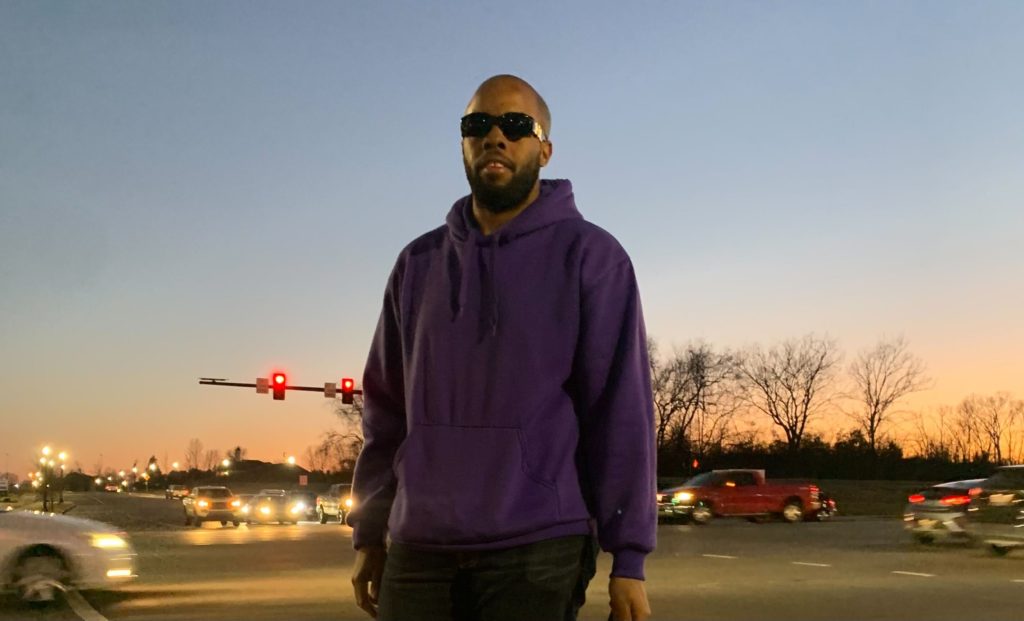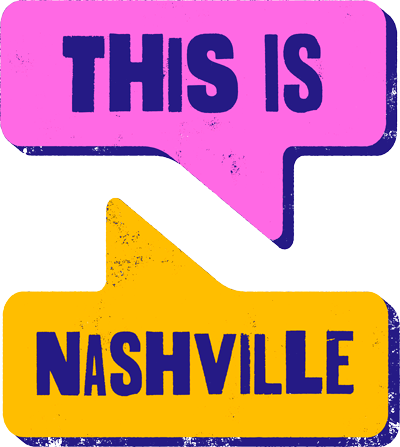
The corner of Robert Rose Drive and Medical Center Parkways is a loud and busy intersection in Murfreesboro. There are four lanes of traffic, and it can feel dicey to navigate as a pedestrian – especially if you are blind.
Quinn Howard knows this firsthand. He has retinitis pigmentosa, or RP, and as a result, he has little to no vision in his left eye and only some central vision in his right eye. He has to cross this intersection almost daily, and even with his guide dog, Yuri, by his side, it’s dangerous.
First, the curb is rounded, and the textured truncated dome that is meant to let Howard know which direction to cross actually points diagonally, straight into traffic. Second, the crosswalk signal doesn’t make any noise, so Howard has to rely on the noise of passing cars to figure out if it’s safe for him to cross. And third, there are multiple lanes of traffic, so it’s really loud, which makes it hard for Howard to know what’s going on.
For many people living with a disability in Middle Tennessee, these gaps in infrastructure are major systemic obstacles that shape what they are able to do in their daily life.
‘I’m not Daredevil’
James Brown can relate to Howard’s experience. Brown, who is also blind, serves on the Mayor’s Advisory Committee for People with Disabilities.
He also works for the Tennessee Department of Transportation, which takes him to downtown Nashville a lot. Constant construction means he’s never totally sure which sidewalks will be open and accessible. He uses the Google Maps app on his phone to help him navigate and said it is totally accessible.
“I’m not Daredevil,” he said, referring to the blind Marvel superhero.
“I’m also not super incompetent. And a lot of times people try to put me in (one) of those categories. And really, I’m just a regular guy, just like everybody else,” he said.
In his four years on the Mayor’s Advisory Committee for People with Disabilities, there have been three different mayors, which has made it difficult to make progress. Adding a position in the mayor’s office dedicated to disability issues could help, he said.
“Interjecting that voice of disability into every conversation that’s had with the city so that people with disabilities aren’t left out – I think that would be so important for us to do,” he said.
Accessing resources
Sidewalks have been a major point of focus for Jerry Hall, the Metro ADA coordinator. In 2019, he helped organize a detailed survey of Nashville’s sidewalks. The survey maps out where sidewalks are in the city and if there are any obstructions, like telephone poles.
“I always say we can’t fix what we don’t know about,” Hall said.
That’s why he encourages people to email him so he can continue to make sure the survey is up to date.
Building a network and identifying resources can be a huge help for people with disabilities. Dr. Tonika East, whose daughter is blind, recently moved to Kentucky and said it was difficult to suddenly lose access to the services they were familiar with in Tennessee. One being the Tennessee Disability Pathfinder. East said it is a helpful “catch-all” that serves to connect people living with disabilities to resources suited to their specific needs.
“Disability comes in all facets. They don’t all look alike,” she said.
That’s a sentiment that Alexandra Jobe, a freshmen at MTSU who uses a wheelchair, wishes more people understood. When she was younger, Jobe said that teachers often asked her to explain her disability to her peers.
“I always had to go in front of my class and say, like, ‘Hi, my name is Alexandra. I have a disability,’ to make the people in my class feel more comfortable. And I never felt comfortable,” she said.
Rhonda Clark, who has cerebral palsy, uses a motorized wheelchair that doesn’t fold so it can’t fit in most cars. She is able to use AccessRide, a paratransit system that Davidson County residents with disabilities can sign up for online.
Clark said she wishes that service could extend to people living outside of Davidson County.
“Everybody should have the same access to get to work, go where they want to go, live where they want to live and be who they were created to be,” she said.
Need to prioritize accessibility
Steve Norman, who lost his vision when he was 22, grew up in Nashville and now lives in Murfreesboro. When he moved, he lost access to AccessRide.
The apartment complex he lives in is located directly on a busy road. About seven years ago, he reached out to a city planner to request that the sidewalk be extended so he could get around more safely. So far, nothing has been done.
“I know that their hands are full, but it makes me feel ignored and it makes me feel unimportant and it makes me feel put on hold. My life is on hold,” he said.
As Nashville and nearby communities continue to grow, prioritizing accessibility is vital, said Norman.
“Nashville, if it wants to be the ‘It City,’ then it’s going to have to address the needs of the disabled.”
Read a transcript of the audio here.
Contact Rose Gilbert at [email protected], and follow her on Twitter or Instagram.


